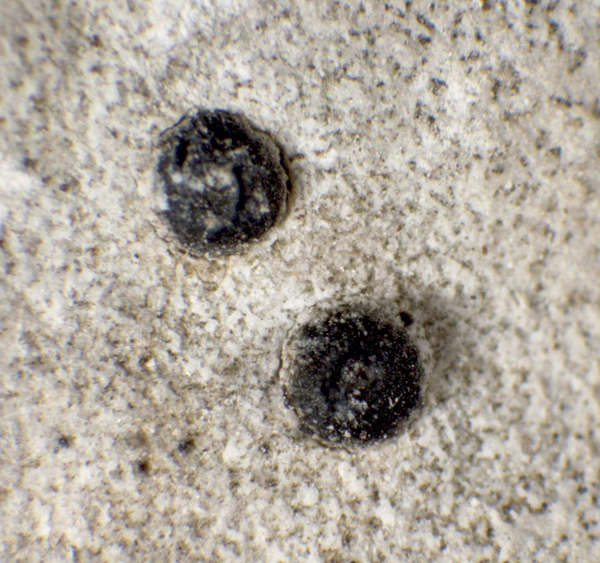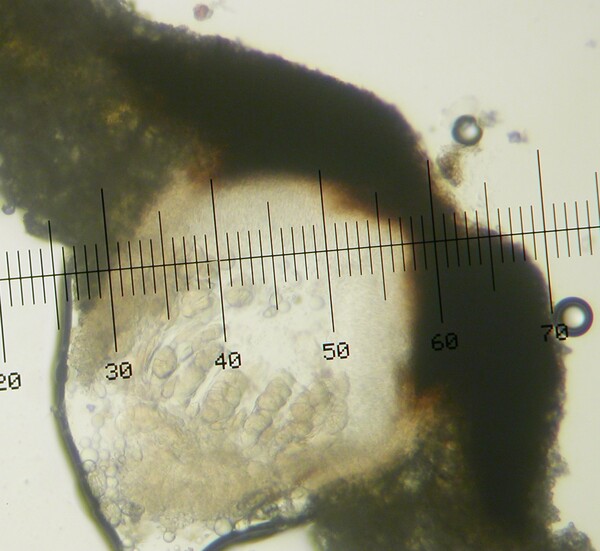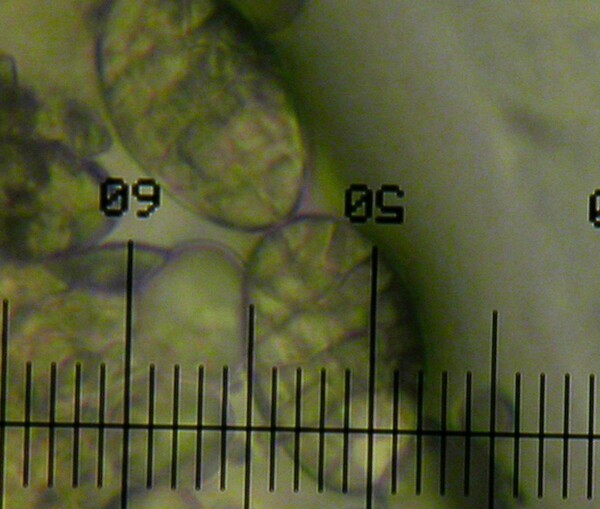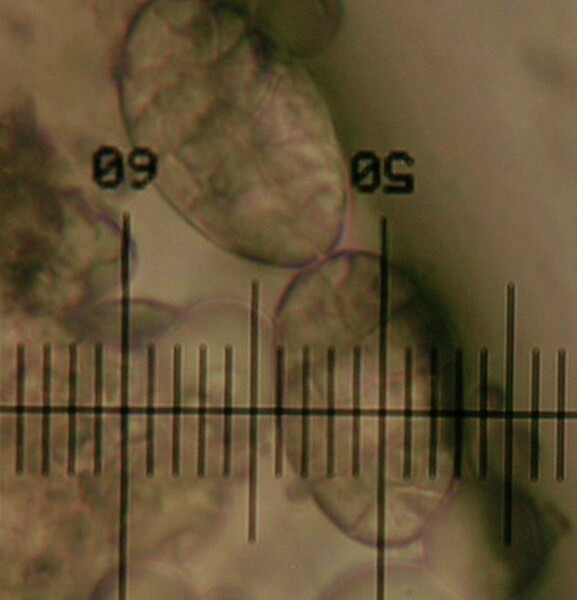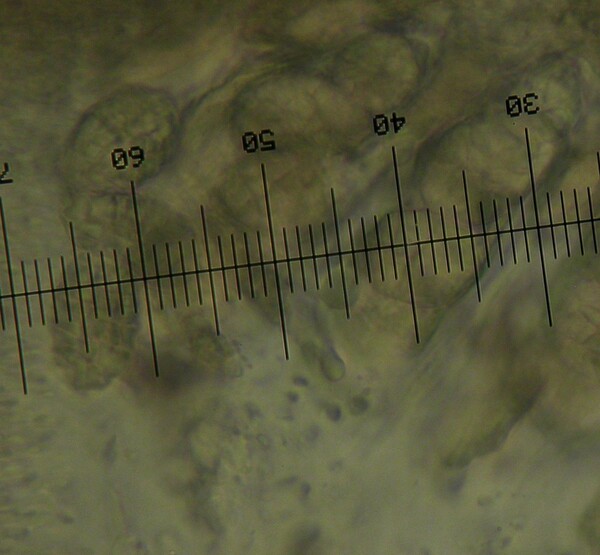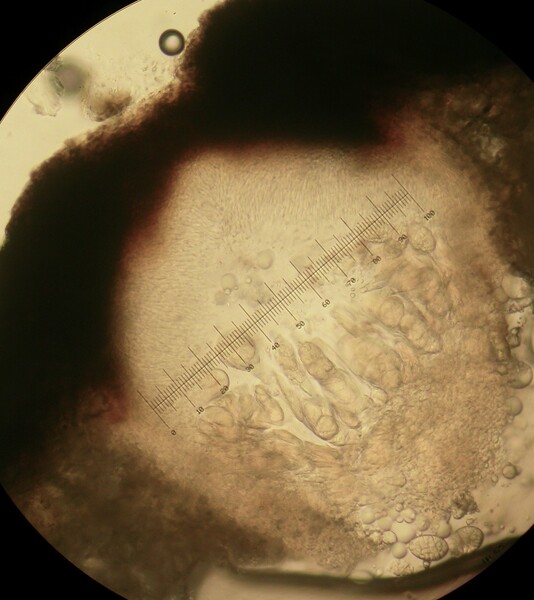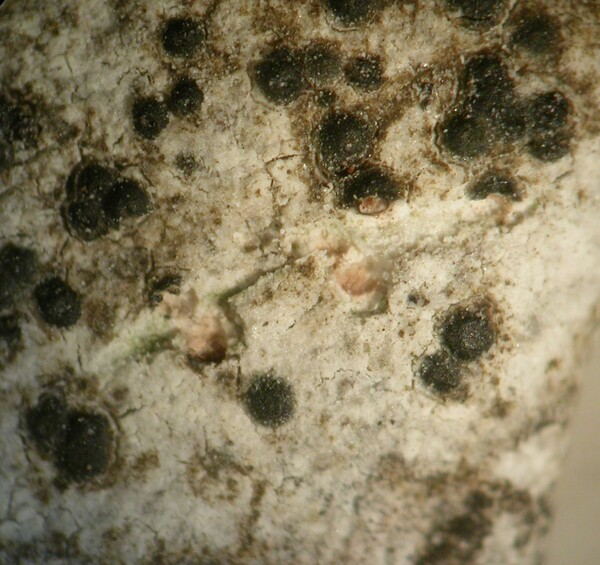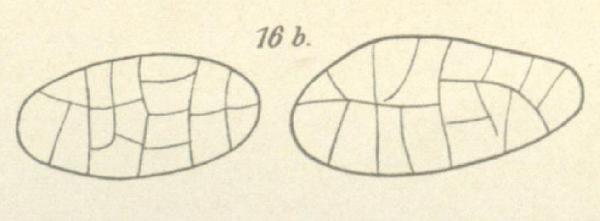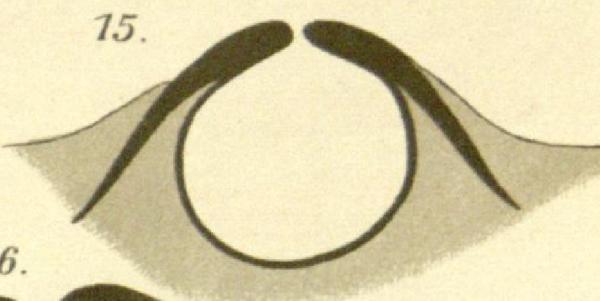Polyblastia ventosa Arnold
Verh. zool.-bot. Ges. Wien, 19: 648, 1869 nom. illegit., non A. Massal.
Synonyms:
Description: Thallus crustose, endosubstratic or thinly episubstratic, continuous to irregularly rimose around the perithecia, whitish grey. Perithecia black, 0.4-0.7 mm across, c. half immersed, with a flattened apex and an often slightly open ostiolum. Involucrellum present, thick; exciple pale throughout; hamathecium of periphyses and periphysoids, interascal filaments absent; hymenial gel hemiamyloid, I+ red (I+ blue at very low concentrations of I), K/I+ blue. Asci 8-spored, clavate, K/I-, fissitunicate, the wall thickened above, with a broad ocular chamber, dehiscent by extrusion of an endotunica to form a delicate rostrum. Ascospores muriform, hyaline, ellipsoid, rounded at both ends, 22-45 x 10-25 µm. Photobiont chlorococcoid. Spot tests: K-, C-, KC-, P-, UV-. Chemistry: without lichen substances.
Growth form: Crustose endolithic
Substrata: rocks
Photobiont: green algae other than Trentepohlia
Reproductive strategy: mainly sexual
Commonnes-rarity: (info)
Alpine belt: rather common
Subalpine belt: extremely rare
Montane belt: absent
Dry submediterranean belt: absent
Humid submediterranean belt: absent
Padanian area: absent
pH of the substrata:
1 2 3 4 5
Solar irradiation:
1 2 3 4 5
Aridity:
1 2 3 4 5
Eutrophication:
1 2 3 4 5
Poleotolerance:
0 1 2 3
Altitudinal distribution:
1 2 3 4 5 6
Rarity
absent
extremely rare
very rare
rare
rather rare
rather common
common
very common
extremely common
Loading data...
Occurrence data
Predictive map
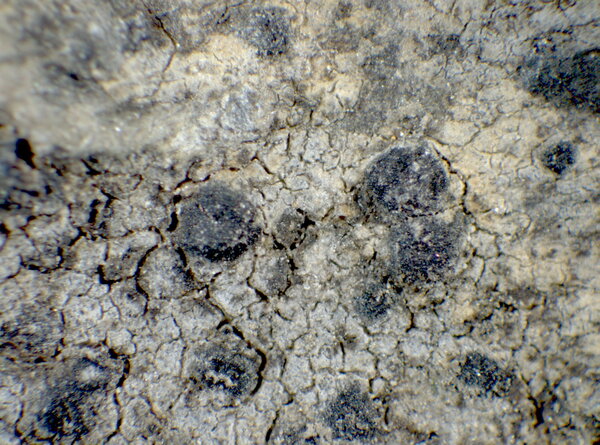
P.L. Nimis; Owner: Department of Life Sciences, University of Trieste
Herbarium: TSB (34654)
2002/01/30
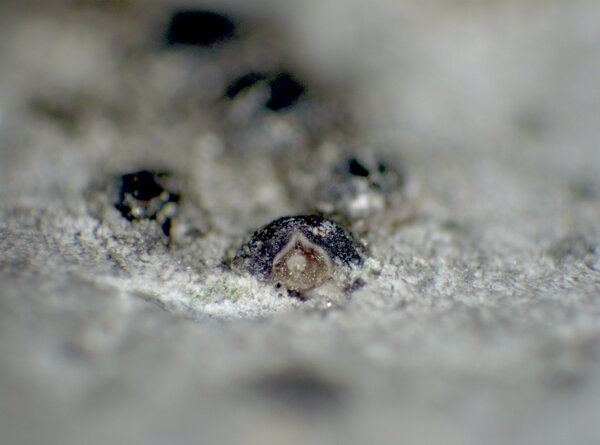
P.L. Nimis; Owner: Department of Life Sciences, University of Trieste
Herbarium: TSB (34654)
2002/01/31
sectioned perithecium
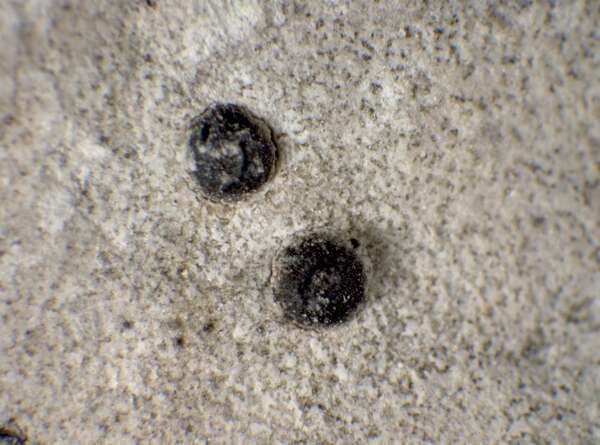
P.L. Nimis; Owner: Department of Life Sciences, University of Trieste
Herbarium: TSB (23781)
2001/12/12
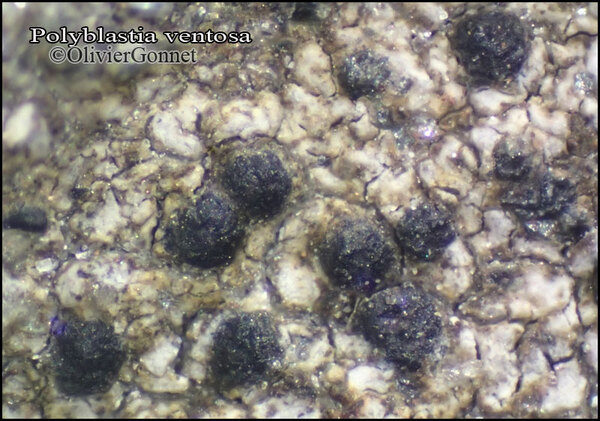
Courtesy Danièle et Olivier Gonnet - Source: https://www.afl-lichenologie.fr/Photos_AFL/Photos_AFL_P/Text_P_3/Polyblastia_ventosa.htm
France, 3/8/2013 - Lanslebourg, Mont-Cenis - alt. 2000 m - Savoie
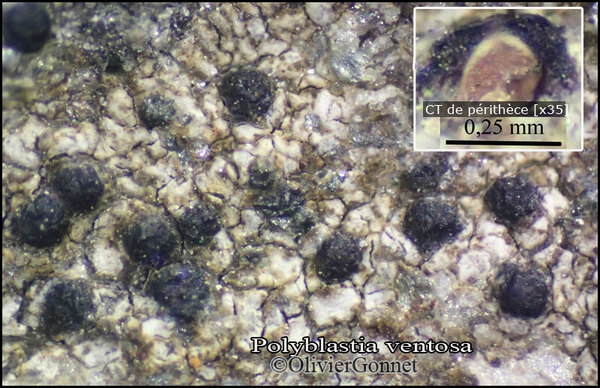
Courtesy Danièle et Olivier Gonnet - Source: https://www.afl-lichenologie.fr/Photos_AFL/Photos_AFL_P/Text_P_3/Polyblastia_ventosa.htm
France, 3/8/2013 - Lanslebourg, Mont-Cenis - alt. 2000 m - Savoie
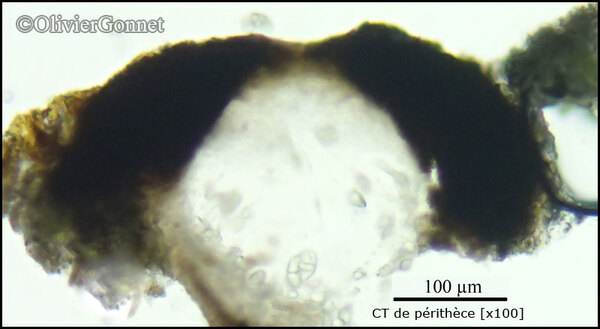
Courtesy Danièle et Olivier Gonnet - Source: https://www.afl-lichenologie.fr/Photos_AFL/Photos_AFL_P/Text_P_3/Polyblastia_ventosa.htm
France, 3/8/2013 - Lanslebourg, Mont-Cenis - alt. 2000 m - Savoie
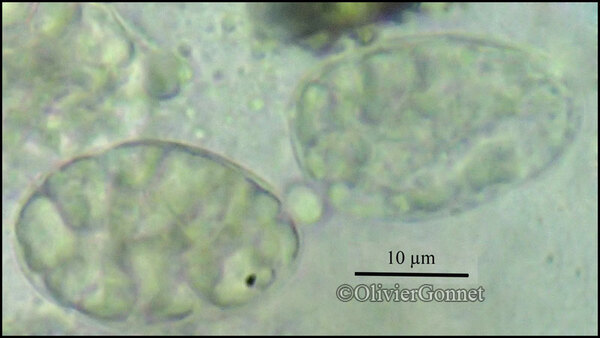
Courtesy Danièle et Olivier Gonnet - Source: https://www.afl-lichenologie.fr/Photos_AFL/Photos_AFL_P/Text_P_3/Polyblastia_ventosa.htm
France, 3/8/2013 - Lanslebourg, Mont-Cenis - alt. 2000 m - Savoie
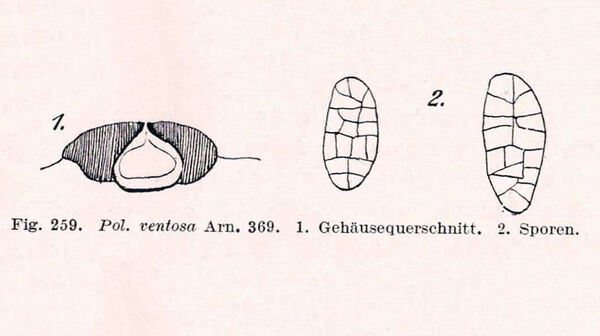
Source: Zschacke, H. (1934) Epigloeaceae, Verrucariaceae und Dermatocarpaceae. In: Dr. L. Rabenhorst‘s Kryptogamen-Flora, Band 9, Abt. 1, Teil 1. Akademische Verlagsgesellschaft, Leipzig, 695 pp. - Public Domain
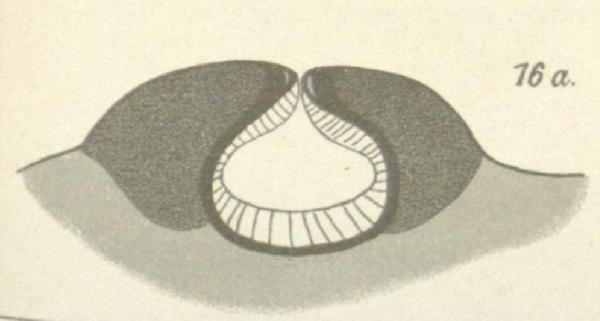
Source: Zschacke H. 1914. Die mitteleuropäsche Verrucariaceen. II. Hedwigia, 55: 286-324. Public Domain
Arn. 369: a Perithezium, b 2 Sporen.
Growth form: Crustose endolithic
Substrata: rocks
Photobiont: green algae other than Trentepohlia
Reproductive strategy: mainly sexual
Commonnes-rarity: (info)
Alpine belt: rather common
Subalpine belt: extremely rare
Montane belt: absent
Dry submediterranean belt: absent
Humid submediterranean belt: absent
Padanian area: absent
pH of the substrata:
| 1 | 2 | 3 | 4 | 5 |
Solar irradiation:
| 1 | 2 | 3 | 4 | 5 |
Aridity:
| 1 | 2 | 3 | 4 | 5 |
Eutrophication:
| 1 | 2 | 3 | 4 | 5 |
Poleotolerance:
| 0 | 1 | 2 | 3 |
Altitudinal distribution:
| 1 | 2 | 3 | 4 | 5 | 6 |
Rarity
absent
extremely rare
very rare
rare
rather rare
rather common
common
very common
extremely common
Loading data...
Occurrence data
Predictive map

P.L. Nimis; Owner: Department of Life Sciences, University of Trieste
Herbarium: TSB (34654)
2002/01/30

P.L. Nimis; Owner: Department of Life Sciences, University of Trieste
Herbarium: TSB (34654)
2002/01/31
sectioned perithecium

P.L. Nimis; Owner: Department of Life Sciences, University of Trieste
Herbarium: TSB (23781)
2001/12/12

Courtesy Danièle et Olivier Gonnet - Source: https://www.afl-lichenologie.fr/Photos_AFL/Photos_AFL_P/Text_P_3/Polyblastia_ventosa.htm
France, 3/8/2013 - Lanslebourg, Mont-Cenis - alt. 2000 m - Savoie

Courtesy Danièle et Olivier Gonnet - Source: https://www.afl-lichenologie.fr/Photos_AFL/Photos_AFL_P/Text_P_3/Polyblastia_ventosa.htm
France, 3/8/2013 - Lanslebourg, Mont-Cenis - alt. 2000 m - Savoie

Courtesy Danièle et Olivier Gonnet - Source: https://www.afl-lichenologie.fr/Photos_AFL/Photos_AFL_P/Text_P_3/Polyblastia_ventosa.htm
France, 3/8/2013 - Lanslebourg, Mont-Cenis - alt. 2000 m - Savoie

Courtesy Danièle et Olivier Gonnet - Source: https://www.afl-lichenologie.fr/Photos_AFL/Photos_AFL_P/Text_P_3/Polyblastia_ventosa.htm
France, 3/8/2013 - Lanslebourg, Mont-Cenis - alt. 2000 m - Savoie

Source: Zschacke, H. (1934) Epigloeaceae, Verrucariaceae und Dermatocarpaceae. In: Dr. L. Rabenhorst‘s Kryptogamen-Flora, Band 9, Abt. 1, Teil 1. Akademische Verlagsgesellschaft, Leipzig, 695 pp. - Public Domain



